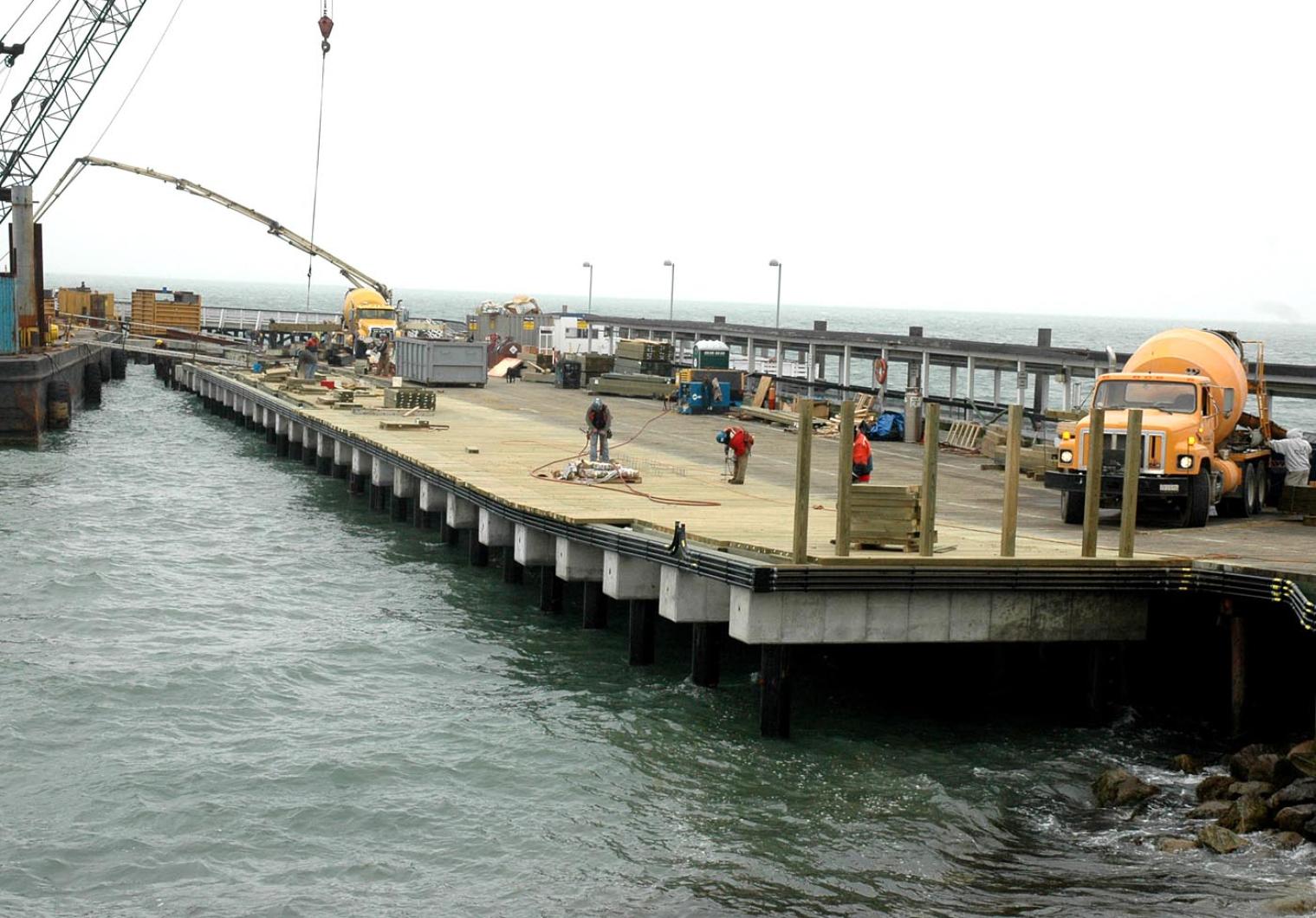Fares for both cars and passengers on Steamship Authority ferries will go up beginning May 1 as a result of soaring world energy prices.
Passenger fare increases on both the Vineyard and Nantucket routes were recommended by boat line management at the April governors’ meeting in New Bedford on Tuesday. The fare hikes are expected to raise an extra $1.5 million in revenue to offset fuel price increases.
But after a long discussion, boat line governors called for raising vehicle rates as well, to provide a further financial cushion of some $575,000.
Only one of the five board members, David Oliveira of New Bedford, voted against the price rises.
The one-way fare for a regular adult ticket will increase from $6.50 to $7, excluding embarkation fees. Fares for children and seniors will go up proportionately, from $3.25 to $3.50.
Rates for cars and trucks under 20 feet long will go up $2.50 each way, for both regular and excursion fares, on the Vineyard run.
Daily fees at the boat line’s mainland parking lots also will go up from $10 to $12.
Boat line general manager Wayne Lamson told governors at the start of the meeting, apart from the fuel issue, the SSA operation is in relatively good shape.
Although maintenance, medical and legal expenses were up in February, so were passenger and vehicle numbers. But fuel prices, which hit a new record of almost $114 a barrel on the same day as the meeting, foreshadowed trouble ahead, Mr. Lamson said.
The real bad news was presented by the SSA treasurer Robert Davis. Last year, he said, fuel costs were $6.6 million, or about 9.1 per cent of costs. In this year’s budget, it was budgeted at $9.4 million, or 12.3 per cent.
And that was at an assumed $90 per barrel for oil. Since mid-February, though, oil prices had been in the $100 to $110 per barrel.
Mr. Davis had prepared a written analysis for board members, which noted: “While the latest U.S. Department of Energy forecast predicts crude oil should average $101 per barrel for the remainder of 2008, the NYMEX [New York Mercantile Exchange] futures have been trading between $103 and $110 . . .”
On the basis of the Nymex figures, his analysis said the SSA would incur additional fuel oil expense of approximately $1.5 million.
When that amount was allocated according to the routes ferries run, it meant an additional cost of $600,000 on the Vineyard route and $900,000 on the Nantucket route.
The SSA already has implemented conservation measures, requiring captains to slow the boats to ensure they arrive exactly on time, a step which Vineyard governor Marc Hanover noted had caused comment and some complaints from the traveling public.
The board discussed various other options for saving money, including more frequent fueling to decrease the weight of boats. But Carl Walker, the director of maintenance and engineering, said savings would be minimal, and there would be a greater risk of fuel spills or other accidents.
Much of the discussion related to the prospect of imposing a fuel surcharge, instead of fare increases, on the basis that a surcharge would be a more flexible measure, which could rise or fall as fuel costs did.
There was talk about a hybrid of the two: adopting the management’s suggestions for passenger fare hikes now, and topping them up later in the year with a surcharge, if necessary.
But the governors eventually talked themselves out of that position, on the basis that because so many vehicle spaces were pre-sold, a surcharge later in the summer would apply to a relatively small number of bookings, and hit them harder as a result.
Asked for his view, SSA general counsel Steven Sayers said if a surcharge were to be imposed, it would be better to do it now, and then to take it off in June or July, if possible.
Falmouth governor Robert Marshall, who correctly predicted the sharp oil price increases several months ago and led the push for management to lift its original budget estimates for fuel costs, again pushed for decisive and early action.
“I’m concerned we’re not being aggressive enough here,” he said.
He was contradicted by Mr. Oliveira who, in one of his few contributions to the discussion, said his concern was that they were “overcooking it” in their reaction.
In the end, however, all but Mr. Oliveira reached the consensus that it was better to act decisively now and not again, and that repeated changes in fare structures would only be more confusing for travelers.
Mr. Marshall asked management to recalculate their figures to find another $500,000, which they quickly did.
Mr. Lamson later said it was the first time he could ever recall management being pushed by the board to a bigger rate increase.






Comments (6)
Comments
Comment policy »